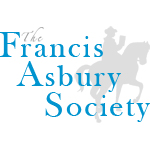Scripture reading: Romans 1:18–23
Chicken, or the Egg?
We walk by faith, not by sight. (II Corinthians 5:7)
Which comes first: the chicken or the egg? The question leaves many of us scratching our heads, but does it even matter? We may choose to dismiss such a question as esoteric when it comes to the barnyard, but when it comes to salvation, we’d better think again.
Which comes first: faith or reason? Do we reason our way to faith or do we believe our way into rationality? Which is the cause and which is the effect? This is a question of ultimate importance; our very salvation hinges on the way we answer it. Let’s ask the question differently: Does what we see determine what we believe or does what we believe determine what we see? In other words, is seeing believing or is believing seeing? Whether we are conscious of it or not, each of us assumes one answer or the other. The Easter season is a good time to examine those assumptions.
Many today pretend that they would put their faith in Jesus Christ if only they had more evidence, more data, more time to consider. “It’s not that I won’t believe,” they say. “But I can’t. There’s just not enough proof.” At first glance, the argument sounds solid, even pious. But such reasoning echoes that of those Pharisees who stood mocking as Jesus died, saying, “Let the Christ, the King of Israel, come down now from the cross that we may see and believe” (Mark 15:32). First, show us the evidence! Then we’ll believe. Really? Just how much evidence would it take? An empty tomb, perhaps?
An alternative path to certainty is laid out in John chapter 11. In a cemetery near Bethany, Jesus showed a humbler audience the true way to knowledge. Lazarus had been dead for four days. His sisters Mary and Martha were grieving when Jesus finally showed up. Both women greeted him with the same complaint: “Lord, if you had been here, my brother would not have died” (John 11:21, 32). Rather than trying to explain the reason for his delay, Jesus spoke directly to the “if” of their unbelief by offering the “if” of faith. “Did I not say to you, if you believe, you will see the glory of God?” (John 11:40, NASB). Suddenly, Martha got it. She didn’t need a resurrection to produce faith. She needed faith to produce a resurrection!
The Pharisees lived by the assumption that seeing is believing. They assumed that they could reason their way to faith. Their arrogance and hypocrisy kept them locked forever in a prison made by their own willful unbelief. Mary and Martha lived by a different set of assumptions and discovered that faith lays the foundation for God to reveal himself in all his splendor. They believed and therefore they saw the glory of God.
Which comes first? Faith or reason? It matters very much how you answer. Perhaps this Easter season you are thinking, “If only Christ would reveal himself to me, then I would put my trust in him. If I could only see, then I would believe.” Would you let me speak bluntly? You’ve put the chicken and the egg in the wrong order. You don’t need more time, more data or more evidence, and thinking you do only secures a future of continued unbelief. Today, why not take a humble step of faith? Today, if you believe . . . if you believe . . . if you believe . . . then you too can see the glory of God!
Seek not to understand that you may believe,
but believe that you may understand.
—Augustine
point to ponder • Instead of reasoning your way into faith, begin to believe your way into rationality.
prayer focus • That agnostics, cynics, skeptics, and atheists would realize their unbelief is a choice.
